*On October 24, 2019, I presented the Hawley Foundation Lecture at Drake University. It was an update and reexamination of a 2006 [speech on professionalism]((https://johnaugust.com/2006/professional-writing-and-the-rise-of-the-amateur)) I originally gave at Trinity University, and later that year at Drake.*
*What follows is a pretty close approximation of my speech, but hardly a transcript. It’s long, around 14,000 words. My presentation originally had slides. I’ve included many of them, and swapped out others for links or embedded posts.*
*If you’re familiar with the earlier speech and want to jump to the new stuff, you can click here.*
—
Back in 2006, I gave a speech here at Drake entitled “Professional Writing and the Rise of the Amateur.” In it, I presented my observations and arguments about how the emergence of the internet had made the old distinctions between amateurs and professionals largely irrelevant. Tonight I want to revisit that speech and look at what still makes sense in 2019, and more importantly, what I got wrong.
To do that, we need to start with a bit of time travel so we can all remember what 2006 looked like.
Here’s Facebook:
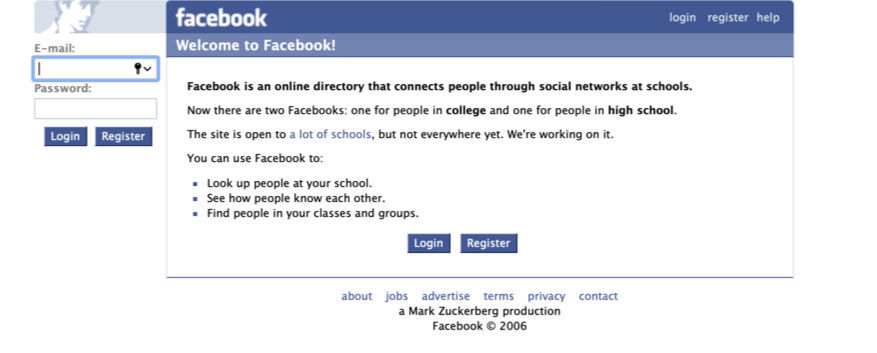
Here’s Twitter:
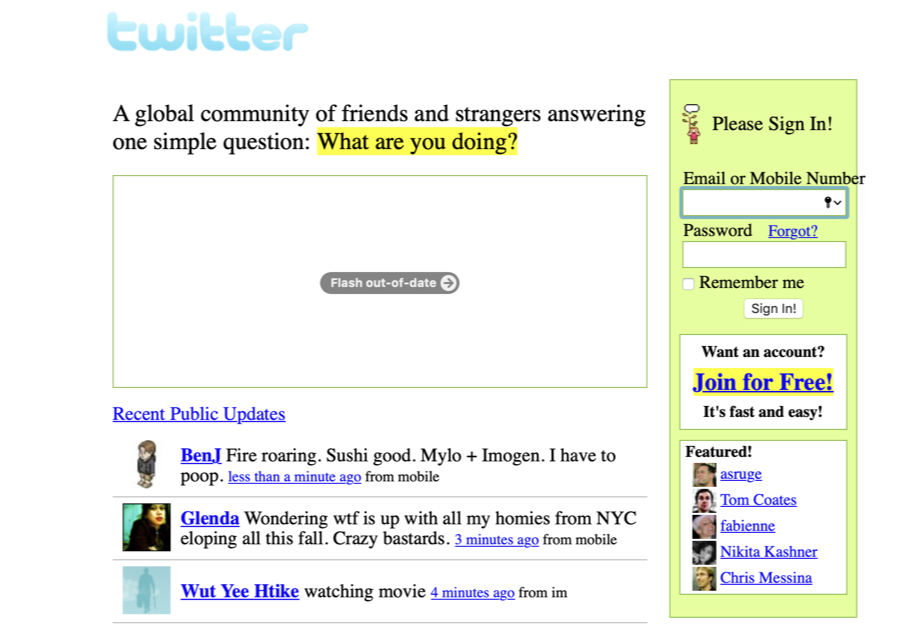
Here’s Netflix:
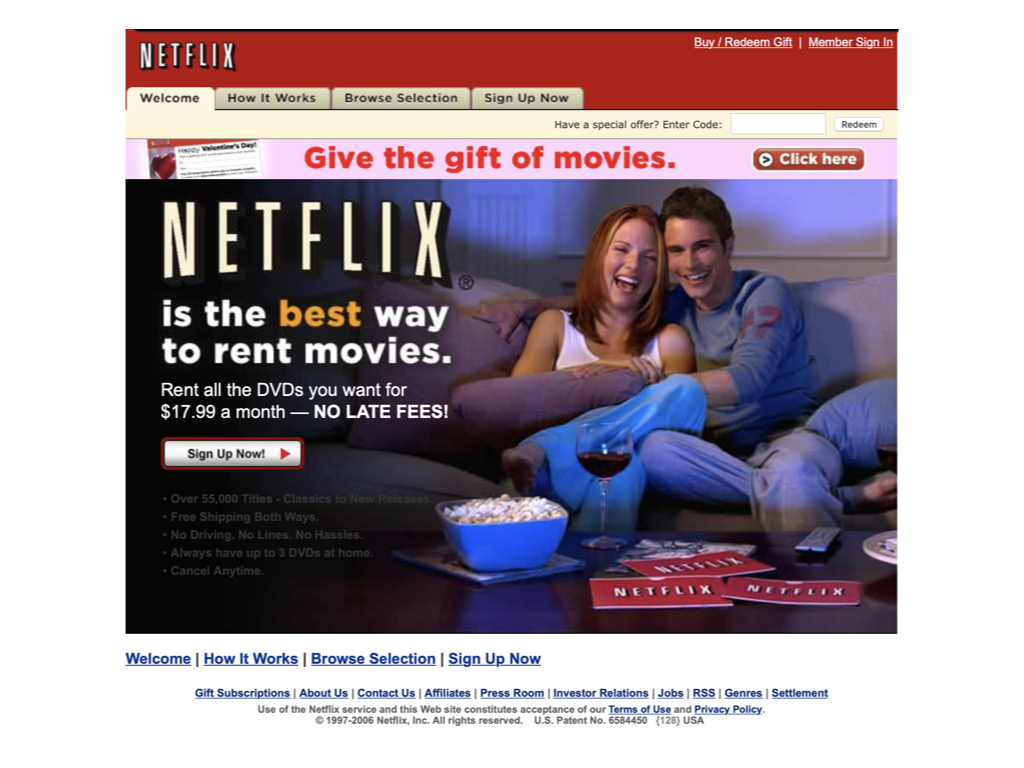
Here’s Reddit:
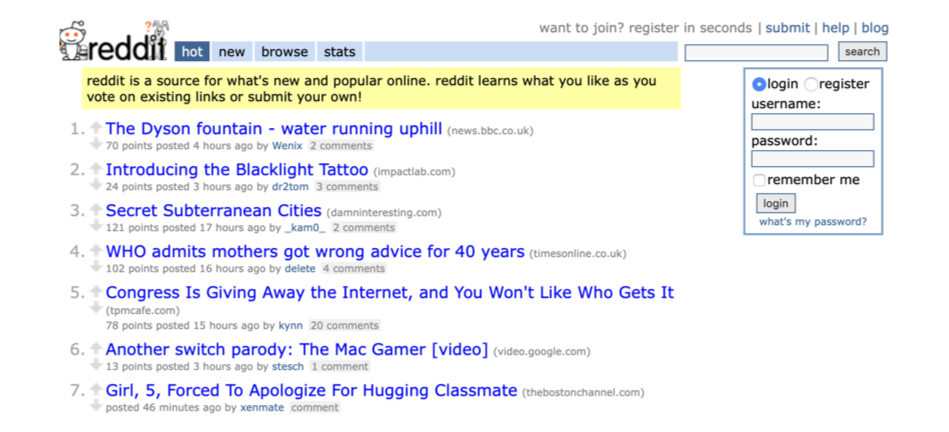
Here’s Instagram:

Oh, 2006 was a simpler time. The internet existed, but it wasn’t as all-consuming as it is now. We had blogs. We had MySpace. But we didn’t have the internet on our iPhones. Because iPhones wouldn’t come out for another year.
However, even in this innocent age, issues would arise that would feel very familiar today. We had fake news and trolls and pile-ons.
For example, back in 2006, I started my speech with this anecdote:
> On March 21, 2004, at about nine in the morning, I got an email from my friend James, saying, “Hey, congrats on the great review of Charlie and the Chocolate Factory on Ain’t It Cool News!”
Let’s start by answering, What is Ain’t It Cool News? It was a movie website started by a guy named Harry Knowles. It looked like this:
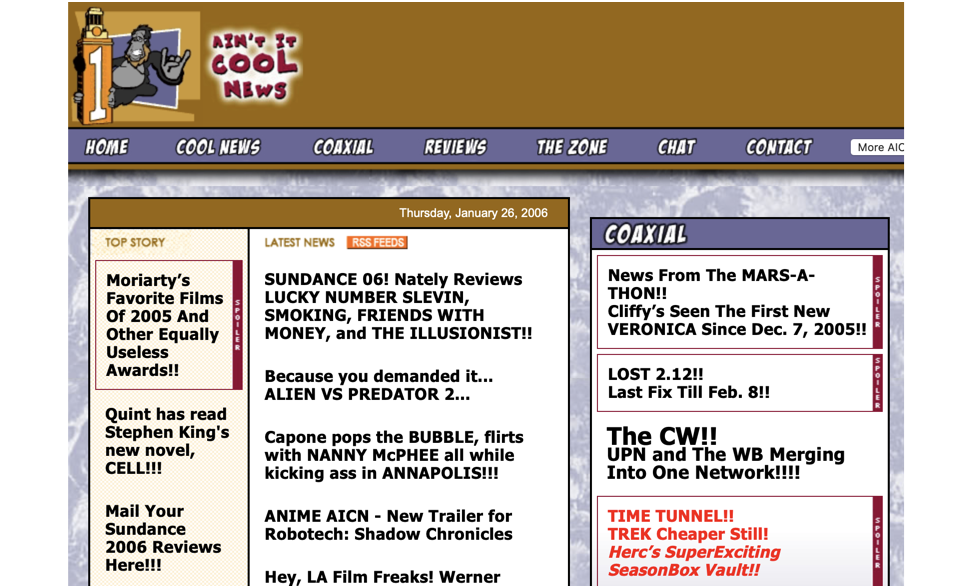
Ain’t It Cool News billed itself as a fan site. I’d argue that it was an incredibly significant step towards today’s fan-centered nerd culture, for better and for worse. Online fandom has brought forth the Avengers and fixed Sonic the Hedgehog’s teeth, but it’s also unleashed digital mobs upon actors and journalists, women in particular.
Back in 2006, the nexus of movie fandom was Ain’t It Cool News. It wasn’t just a barometer of what a certain class of movie fan would like; it could set expectations and buzz. Studio publicity departments checked it constantly.
So, back to my email from James. He’d written:
> “Hey, congrats on the great review of Charlie and the Chocolate Factory on Ain’t It Cool News!”
This was troubling for a couple of reasons.
First off, the movie hadn’t been shot yet. We weren’t in production. So the review was actually a review of the script. Studios and filmmakers really, really don’t like it when scripts leak out and get reviewed on the internet, because it starts this cycle of conjecture and fuss about things that may or may not ever be shot. So I knew that no matter what, I was going to get panicked phone calls from Warner Bros.
I click through to Ain’t It Cool and read this “review.” And it’s immediately clear that it’s a complete work of fiction.
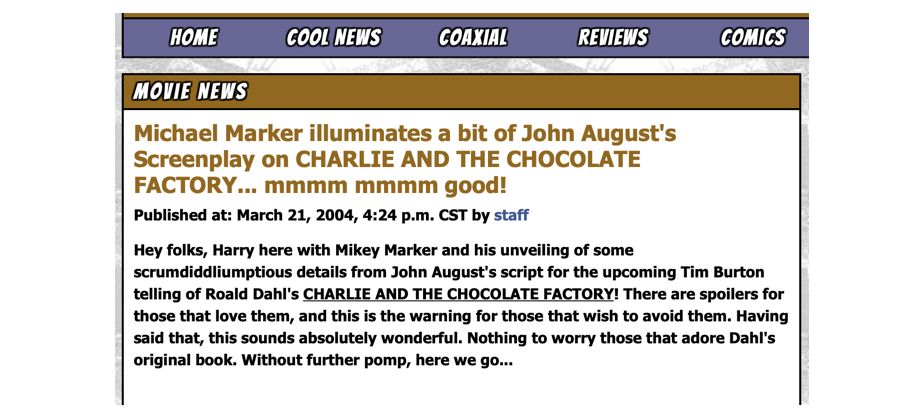
The author of the article, “Michael Marker,” claims to have read the script, but he definitely hasn’t. He’s just making it up. It is literally fake news.
Fortunately, back in 2004, I knew exactly one person at Ain’t It Cool News. His name was Jeremy, but he went by the handle “Mr. Beaks.” So I emailed him, and say, hey, that review of the Charlie script is bullshit.
Actually, I don’t say that. I say, “That guy is bullshitting you.” It’s not that I’m wronged, no. It’s that that guy, Michael Marker, is besmirching the good name of Ain’t It Cool News by trying to pass off his deluded ramblings as truth. How dare he!
And it works. Mr. Beaks talks to Harry Knowles, and Harry posts a new article saying that the review was bogus.
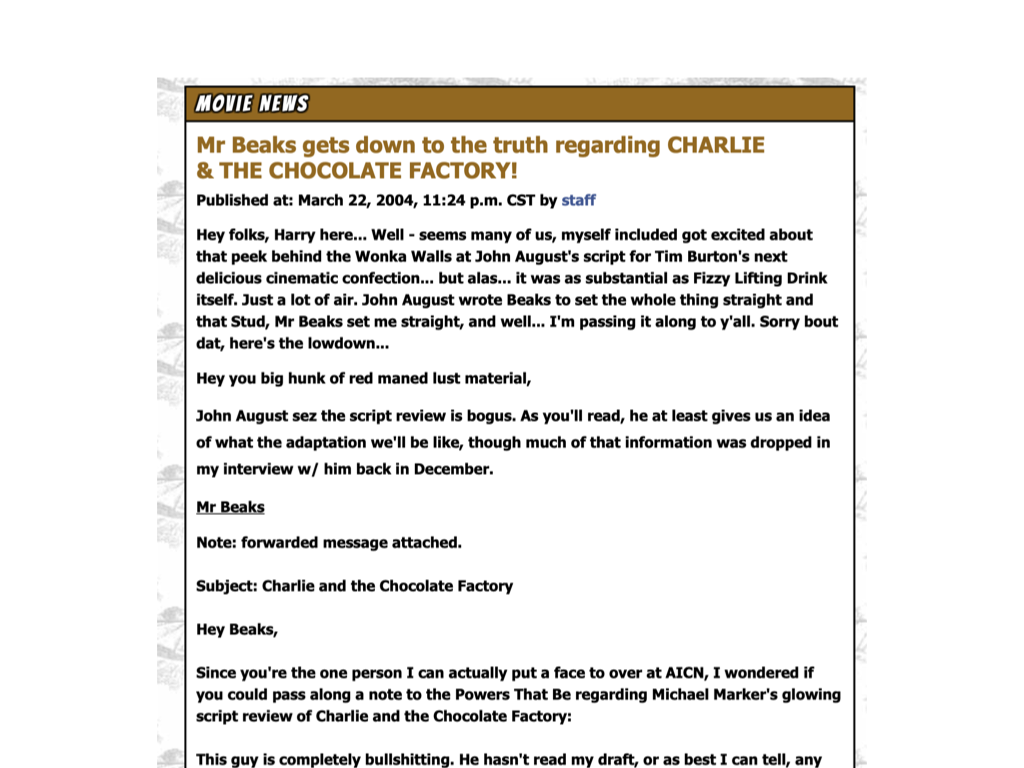
They don’t pull the original article, but oh well. It’s basically resolved.
I can’t help but think — this article was wrong, but it was really, really positive. What if it had been negative? Would Mr. Beaks or Harry Knowles have believed me? Probably not. They would have said, “Oh, sour grapes.” My complaining would have made the readers believe the bogus review even more.
It might have led to the [Streisand effect](https://en.wikipedia.org/wiki/Streisand_effect), where complaining about something just brings more attention to it.
Back in 2006, if you tried to really go after any of these film-related sites, criticizing them for say, running a review of a test screening or just outright making shit up, you’d get one standard response:
> Hey, we’re not professional journalists. We’re just a bunch of guys who really love movies.
Their defense is that they’re amateurs, so they can’t be held to the same standards of the New York Times or NBC.
That became the topic of my speech in 2006: the eroding distinction between professionals and amateurs.
The classic, easy distinction is that the professional gets paid for it, while the amateur doesn’t. For a lot of things, that works. You have a professional boxer versus an amateur. You have a professional astronomer versus an amateur — some guy with a telescope in his back yard.
[Read more…] about Professionalism in the Age of the Influencer